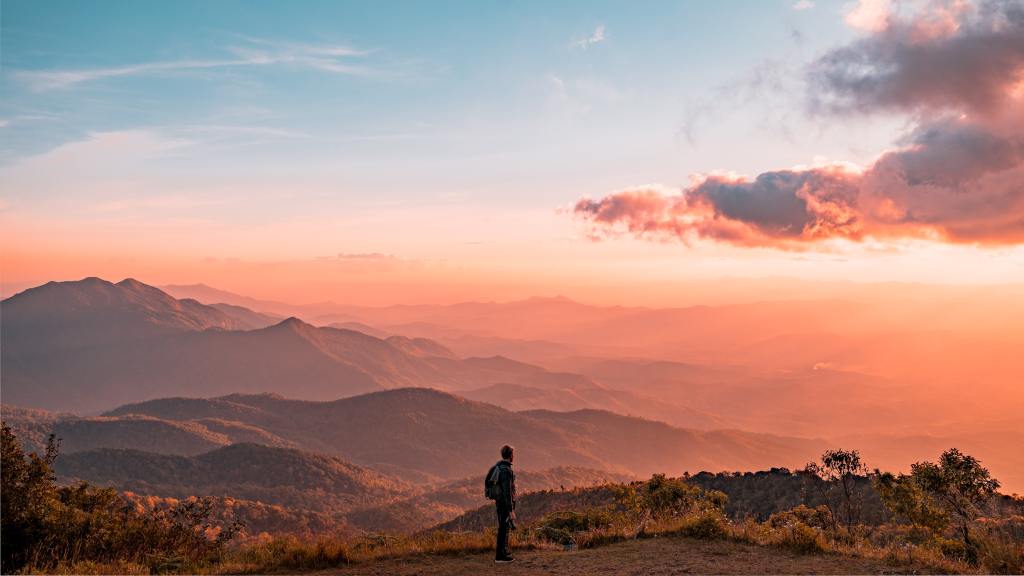So I have been out for a while, trying to deal with being very close to burnout. Feeling better now, but taking that space was critical. I tend to keep pushing myself well beyond what is a good idea, then getting surprised when things start to fall apart. The last few weeks I have been thinking about this and about the sense of going through life with baggage – as a single parent but also in general, as we all do – with the results and scars of our past mistakes and misfortunes, fears and triggers.
This is showing up in my life in a few ways at the moment. From the FIRE perspective, for many people the concept of baggage means coming into this journey deep in debt. And not just in debt, but with the habits, choice and often value systems which led to that debt in the first place. For me as with others, it’s more coming in and realising what I have wasted in getting here and what kind of different position I could be in. But the worst waste of time would be to get stuck in those feelings instead of getting up and at it. Your time is always now.

I was talking to a friend last night who has recently become an expat, a move which has given him a bird’s eye view of his home town. Realising that the years of making just enough money to go out and kick it with friends meant living life, which was all about ‘having fun’ actually kept him in stasis for decades. Now this could be a cause for regret. But equally, our journeys are what made us: looking backward and sneering at our younger selves is not going to change the past, though it might diminish the value that we did find. Being able to make peace with whatever our baggage is – the poor decisions, the risks that we miscalculated, that person we continued to trust in spite of there being more red flags than the bunting at the Communist Party conference – is to make it manageable and be able to take that past along on a brand new journey.
I wrote a while ago about ‘loving what is‘ – that sense of accepting and loving the present just as it is, something which is a critical step on the pathway to peace. The ability to reflect on my own triggers and limiting beliefs means that I can at least recognise them when they come up. Something like shaking hands across the divide. This is what making baggage manageable means to me: it’s not denying it but recognising my part in it, and the positives that either came through the results or through the journey. Kind of like taking a luggage trolley full of giant suitcases, feeding them into a magic vortex machine, and coming out with a little badge that you wear to remember without being tripped over by it. Or, as per my experience last week, you can just give your bags to Kenya Airways and never see them again. Either way, it works.

Making peace can be hard. It can also feel counter-intuitive in a world where – especially with FIRE, and at my stage of life – it’s all about striving. How is it possible to come from a place of tranquility and still have enough drive to get out there? The quote above from Eckhart Tolle speaks to this I think. So much of what we do is about rearranging circumstances, or the small things (or indeed the deckchairs on the Titanic) instead of rearranging how we look on the inside.
Don’t get me wrong, this internal rearranging can be just as tough as making peace. Encouraging the tectonic plates to shift inside you requires tenacity and strength. Especially when it raises questions about whether you will continue to accept the systems you have been brought up with, to live inside the structures you have internalised and all the comfortable spots you’re used to seeking solace in, however damaging.
As I start the long process of moving back to Nairobi, being able to focus on the inner work instead of the busy-work of administration, is critical. The organising bit is easy (actually it’s a massive pain in the ass, but meh) but the work on finding my peace is much harder. Who am I now, as opposed to when I last lived there? Who are my people, how do I feel about how I have moved compared to them and the spaces we find ourselves in? What are the values I have instilled in my myself and my own children and how will these blend or clash? How can I stay open to the great things coming whilst not being so attached to certain things working out that for them to go wrong would destroy me?

All those questions are critical but they aren’t things I need answers to right now. Coming to them with an internal stillness and certainty gives a certain protection both from the intensity of negative results and from freaking the F out. That has to be worth it.